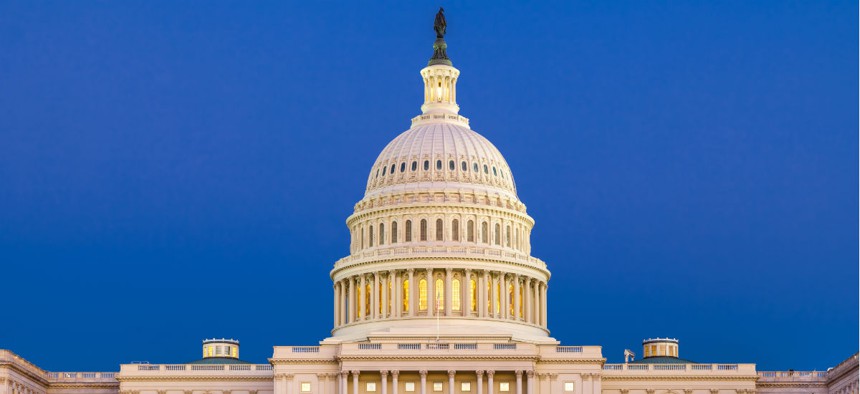
Congress Returns With Less Than Two Weeks to Avoid a Shutdown
Diverging spending priorities could jeopardize Congress’ ability to meet a Dec. 8 deadline to keep agencies open.
Congress has returned from recess to face a crowded legislative calendar, with little time to sort out how to keep the lights on at federal agencies next month.
Lawmakers must pass a spending deal by Dec. 8 to avert a government shutdown. Earlier this month, House Speaker Paul Ryan, R-Wis., said he expects Congress will approve a short-term continuing resolution to keep the government open until the end of 2017, in order to give members additional time to work out a deal to fund the government through the end of fiscal 2018.
But the prospects for reaching agreement on a long-term spending bill remain uncertain. President Trump recently repeated his demand to Congress to fund initial payments toward the construction of a wall along the U.S.-Mexico border, and Republicans on the Senate Appropriations Committee last week rejected the White House’s request for a hiring spree at Immigration and Customs Enforcement.
Additionally, Democrats have vowed to oppose any long-term spending deal that does not include language codifying the Obama administration’s Deferred Action for Childhood Arrivals program, which prevented the deportation of thousands of undocumented immigrants brought to the United States as children. In September, Trump rescinded the deferred action program, but said that implementation of that decision would be delayed by six months.
Further complicating the debate over a full-year spending measure is the need to change the spending caps set by the 2011 Budget Control Act, as a result of Republicans' push to increase defense spending while cutting appropriations for non-defense agencies. Democrats have argued that any adjustment to spending levels should affect defense and non-defense agencies equally.
Meanwhile, a number of other priorities also threaten to derail efforts to keep the government open. The White House and congressional Republicans have insisted they will send a tax reform bill to Trump’s desk by the end of 2017, and the Senate could vote on its version of the Tax Cuts and Jobs Act as early as this week. But as of Monday, Politico reported that Senate Majority Leader Mitch McConnell, R-Ky., does not yet have the majority of senators needed to approve the measure.
Under budget reconciliation instructions approved by Congress in October, the Senate can approve up to $1.5 trillion in deficit spending for tax reform with only 51 votes. But with some Republicans expressing concerns about the current plan’s treatment of pass-through businesses, others worried about a ballooning national debt, and the uncertainty posed by an upcoming special election for Attorney General Jeff Sessions’ Alabama Senate seat, the GOP leadership’s margin for error is razor-thin.
Health care also looms large over December’s proceedings. Senate Finance Committee Chairman Orrin Hatch, R-Utah, included a repeal of the Affordable Care Act’s individual mandate to purchase health insurance in the Senate tax reform legislation. A bipartisan measure ordering the federal government to continue paying cost-sharing reductions that subsidize insurance premiums for individuals on the Obamacare exchanges, also recently rescinded by Trump with a six-month delay, is on Congress’ docket as well.
NEXT STORY: NIH Funding Cuts Could Paralyze Drug Development







